Can You Smoke CBD Oil? Insights and Guidance
In the evolving world of natural wellness, CBD oil has emerged as a beacon of hope for many seeking alternative remedies. However, amidst its rising popularity, questions regarding its usage methods arise, notably, “Can you smoke CBD oil?” This article delves into the nuances of CBD oil, exploring its potential for smoking, its benefits, and considerations to bear in mind.
Estimated reading time: 9 minutes
- Understanding CBD Oil
- The Inquiry: Smoking CBD Oil
- CBD Oil vs. CBD Vape Oil
- What is the difference between CBD oil and CBD vape oil?
- Risks of smoking CBD oil
- Alternatives to Smoking CBD Oil
- Benefits of Choosing Safe Inhalation Methods
- The Real CBD you can smoke
- Considerations for Safe CBD Use
- Conclusion
- FAQ – Can you smoke CBD oil?
- The Real CBD you CAN NOT smoke
Understanding CBD Oil
CBD, or cannabidiol, comes from cannabis plants. Unlike THC, its more famous cousin, CBD doesn't give you a “high.” Manufacturers extract CBD oil from the hemp plant, and people praise it for its therapeutic benefits. These benefits cover reducing anxiety, easing pain, and enhancing sleep quality.

The Inquiry: Smoking CBD Oil
The concept of smoking CBD oil might intrigue many, especially those familiar with smoking cannabis or hemp flowers. However, it is crucial to differentiate between CBD oil intended for oral ingestion and CBD vape oil or CBD e-liquid, which is designed for inhalation.
CBD Oil vs. CBD Vape Oil
Manufacturers often formulate CBD oil, also known as a tincture, for sublingual (under the tongue) use or ingestion. Typically, this oil contains a carrier oil infusion, such as coconut or hemp seed oil. However, smoking this oil can be harmful to your health because burning these oils releases toxic substances.
On the other hand, CBD vape oil, also known as CBD vape juice, is made specifically for vaping. It contains thinning agents such as propylene glycol (PG) or vegetable glycerin (VG), which are safe for inhalation.
What is the difference between CBD oil and CBD vape oil?
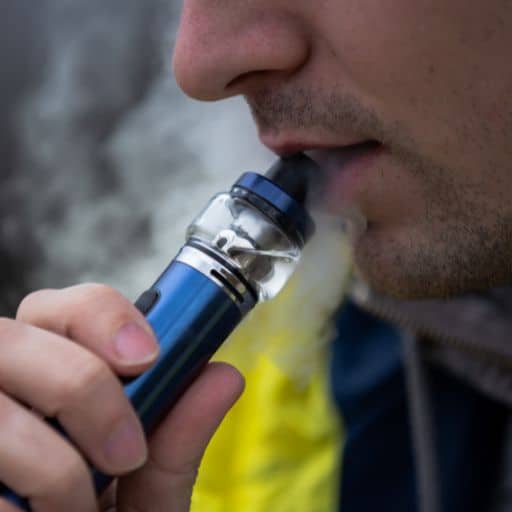
The main difference between CBD oil and CBD vape oil lies in their intended use and formulation.
CBD Oil, Manufacturers primarily design CBD Oil, also known as CBD tincture or hemp oil, for oral consumption. They extract it from cannabis or hemp plants and usually mix it with a carrier oil such as coconut oil, hemp seed oil, or MCT oil to enhance absorption when you ingest it or apply it sublingually (under the tongue). The focus of CBD oil is for therapeutic use, aiming to provide relief from conditions like anxiety, pain, and insomnia among others. Due to its formulation, it is not suitable for inhalation or vaping because the carrier oils can be harmful when heated and inhaled.
CBD Vape Oil, on the other hand, is specifically made for vaping and is sometimes referred to as CBD vape juice or e-liquid. It is formulated to be compatible with vape pens or e-cigarettes. The key difference in its composition is the absence of traditional carrier oils. Instead, it contains thinning agents like propylene glycol (PG) or vegetable glycerine (VG), which are safe for inhalation and help produce the vapour when heated. CBD vape oil is designed to deliver quick effects as inhaling CBD allows for rapid absorption into the bloodstream.
To sum up:
- CBD Oil: Intended for oral use, mixed with carrier oils, not suitable for vaping due to health risks associated with inhaling carrier oils.
- CBD Vape Oil: Specifically formulated for inhalation, contains thinning agents for vaping, offers rapid absorption of CBD into the bloodstream.
It is essential to use each product as intended by the manufacturer to ensure safety and effectiveness. Always check product labels and consult with a healthcare professional if you're unsure which CBD product is right for you.
Related contents
Risks of smoking CBD oil
Smoking CBD oil, specifically oil that is intended for oral consumption, poses several risks due to its formulation and the nature of its use. Here are some of the primary concerns associated with smoking CBD oil:
1. Lung Irritation and Damage
CBD oil intended for oral use is mixed with carrier oils such as coconut oil, hemp seed oil, or MCT oil. When these oils are heated to the point of combustion (as they would be in smoking), they can produce harmful by-products that can irritate and potentially damage the lungs. Regular inhalation of these substances can lead to respiratory issues.
2. Toxicity

Heating carrier oils beyond their smoke point can release toxic compounds. For example, heating certain oils can lead to the emission of acrolein, a known irritant to the lungs and skin, which can cause serious health issues with prolonged exposure.
3. Reduced Effectiveness
The process of burning CBD oil can alter the chemical structure of the CBD, potentially reducing its effectiveness. The heat from smoking can break down the cannabinoids and terpenes that contribute to CBD's therapeutic effects, making it less beneficial.
4. Risk of Incorrect Dosage
When CBD oil is smoked, it is challenging to gauge the exact dosage being consumed. This can lead to either inadequate dosing, not providing the desired therapeutic effects, or overdosing, which could potentially lead to side effects like dizziness, fatigue, and changes in appetite.
5. Legal and Safety Concerns
In some regions, the legality of using CBD products can be quite complex and subject to specific regulations. Using CBD oil in a manner not intended by its formulation (e.g., smoking rather than oral consumption) can further complicate legal issues, especially if the product's composition is altered or if it's used in a way that poses health risks.
6. Potential for Dependence
While CBD itself is not known to be addictive, the act of smoking can be habit-forming. Individuals who smoke CBD oil might develop a psychological habit around the act of smoking, separate from the use of CBD for therapeutic purposes.
For those looking to benefit from CBD, it's crucial to use products as intended by their manufacturers and to consider safer alternatives for inhalation, such as vaping with CBD vape oil specifically designed for that purpose, or utilizing other forms of CBD that are intended for oral, topical, or sublingual use. Always consult with a healthcare provider before starting any new supplement regimen, especially if you have existing health conditions or concerns.
Alternatives to Smoking CBD Oil

For those looking to experience the benefits of CBD through inhalation, consider the following safer alternatives:
CBD Vaping: Opt for CBD vape oil or e-liquid, which is specifically designed for use in vape pens or e-cigarettes.
CBD Flowers: Smoking CBD-rich hemp flowers is another alternative. This method ensures you are inhaling CBD in its natural form, without the added risks of ingesting carrier oils.
Dabbing CBD Concentrates: For a potent experience, CBD concentrates like waxes and shatters can be used with special vaping devices designed for concentrates.
Benefits of Choosing Safe Inhalation Methods
Choosing the right method for inhaling CBD can offer numerous benefits, including:
Immediate Effects: Inhalation allows for rapid absorption of CBD into the bloodstream, providing quick relief from symptoms.
Control Over Dosage: Vaping or smoking allows users to control their dosage more precisely, ensuring they receive the desired therapeutic effects.
Enjoyable Experience: Many find the act of vaping or smoking CBD to be a pleasurable and relaxing experience.
The Real CBD you can smoke
-
Product on sale
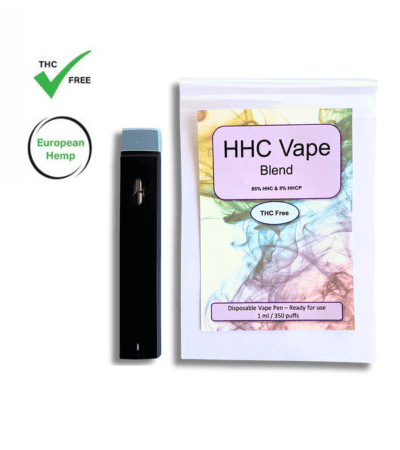 HHC VapeOriginal price was: €55.00.€35.00Current price is: €35.00.
HHC VapeOriginal price was: €55.00.€35.00Current price is: €35.00. -
Product on sale
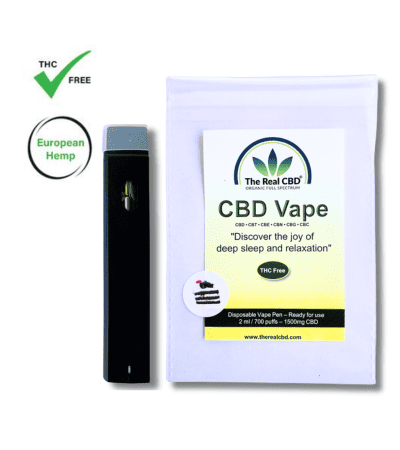 CBD Vape – Broad Spectrum€30.00 – €45.00
CBD Vape – Broad Spectrum€30.00 – €45.00
Considerations for Safe CBD Use

While exploring the inhalation of CBD, consider the following to ensure a safe and beneficial experience:
Quality and Purity: Always choose high-quality, lab-tested CBD products to avoid contaminants that could harm your health.
Legal Status: Be aware of the legal status of CBD and related products in your area to avoid legal complications.
Consult a Healthcare Professional: If you are considering CBD for therapeutic purposes, consult with a healthcare professional to ensure it's appropriate for your health needs.
Conclusion
While the allure of smoking CBD oil might stem from curiosity or the desire for a novel experience, understanding the risks and alternatives is paramount. By choosing safe methods and high-quality products, individuals can enjoy the benefits of CBD in a manner that is both effective and responsible.
FAQ – Can you smoke CBD oil?

No, CBD oil is not designed for smoking. It is primarily made for oral consumption or topical application, depending on the product type. Smoking CBD oil intended for these uses can be harmful.
Yes, there are products specifically designed for inhalation, such as CBD vape oils and CBD flowers. These are formulated differently from CBD oil tinctures and are safe for smoking or vaping.
Smoking CBD oil not made for inhalation can lead to lung irritation or damage. It can also degrade the oil's beneficial properties, making it less effective.
Smoking CBD oil not made for inhalation can lead to lung irritation or damage. It can also degrade the oil's beneficial properties, making it less effective.
No, smoking CBD oil or inhaling CBD through vaping will not produce a “high” effect. CBD is non-psychoactive, unlike THC, which is the compound responsible for the high associated with cannabis.
Yes, inhaling CBD through smoking or vaping allows for quick absorption into the bloodstream, potentially providing faster relief for conditions like anxiety or pain compared to other consumption methods. However, it is important to choose products designed for inhalation to ensure safety.
The Real CBD you CAN NOT smoke
-
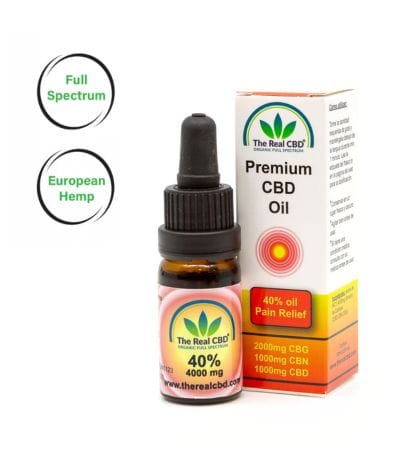 40% Pain Relief oil€179.00
40% Pain Relief oil€179.00 -
Product on sale
 CBD Vape – Broad Spectrum€30.00 – €45.00
CBD Vape – Broad Spectrum€30.00 – €45.00 -
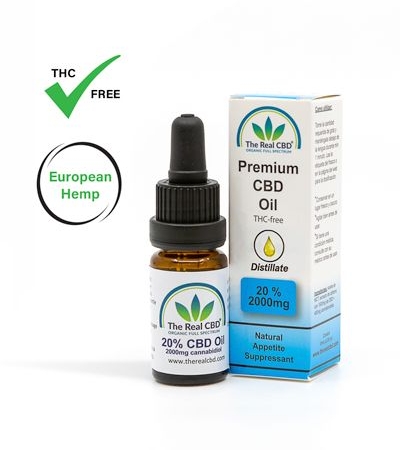 20% CBD oil – Distillate€92.00
20% CBD oil – Distillate€92.00 -
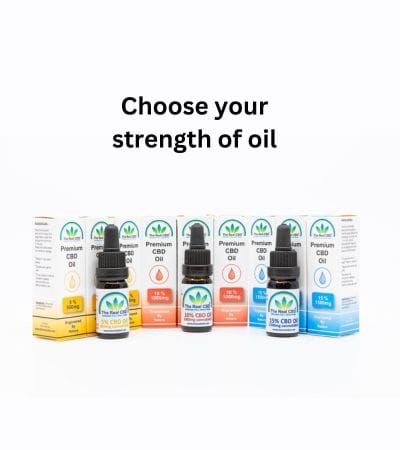 CBD 3 for 2 pack€58.00 – €170.00
CBD 3 for 2 pack€58.00 – €170.00 -
Product on sale
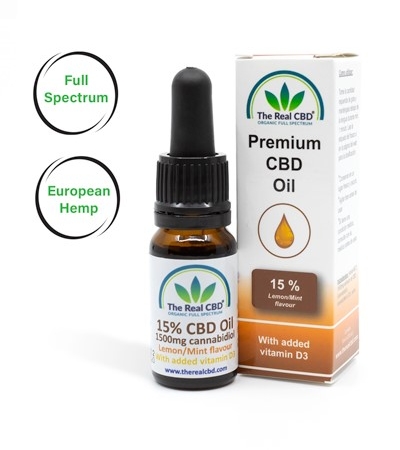 15% CBD oil with Vitamin D3Original price was: €85.00.€75.50Current price is: €75.50.
15% CBD oil with Vitamin D3Original price was: €85.00.€75.50Current price is: €75.50. -
Product on sale
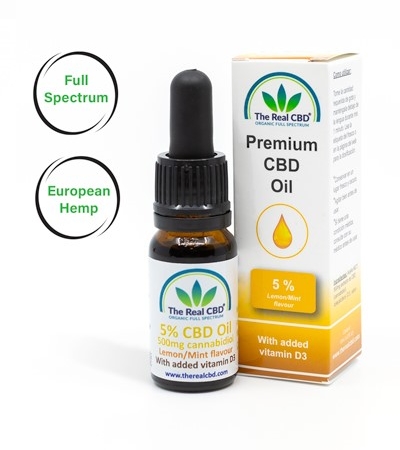 5% CBD oil with Vitamin D3Original price was: €29.00.€24.00Current price is: €24.00.
5% CBD oil with Vitamin D3Original price was: €29.00.€24.00Current price is: €24.00. -
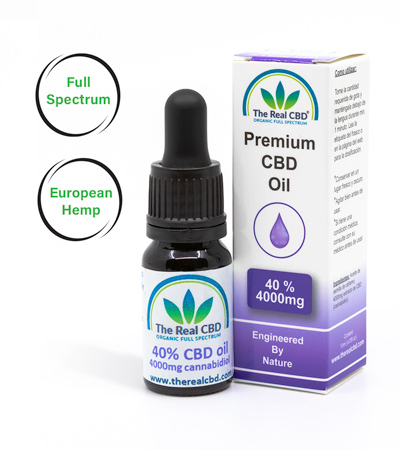 40% Raw CBD Oil€189.00
40% Raw CBD Oil€189.00 -
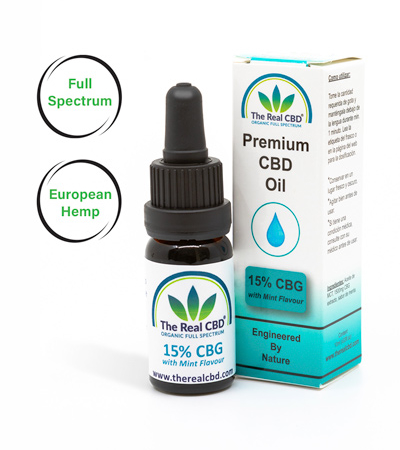 15% CBG Oil with mint taste€119.00
15% CBG Oil with mint taste€119.00 -
Product on sale
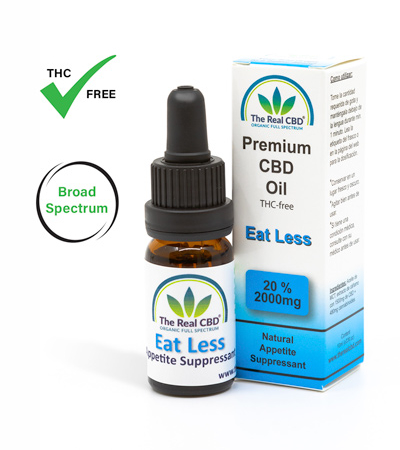 Eat Less – Natural Appetite SuppressantOriginal price was: €85.00.€55.90Current price is: €55.90.
Eat Less – Natural Appetite SuppressantOriginal price was: €85.00.€55.90Current price is: €55.90. -
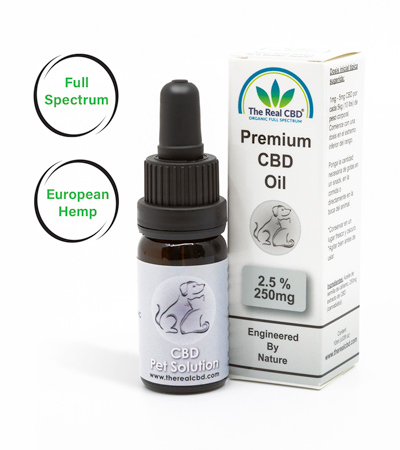 2.5% CBD oil for Pets€15.00
2.5% CBD oil for Pets€15.00 -
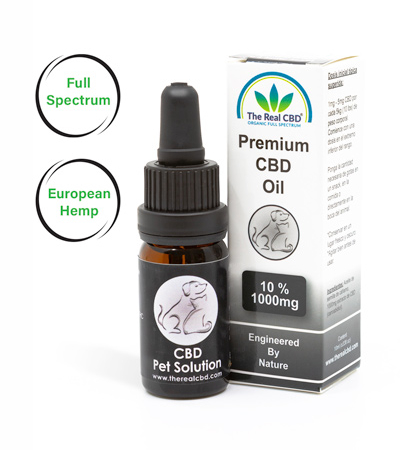 10% CBD oil for Pets€55.00
10% CBD oil for Pets€55.00 -
Product on sale
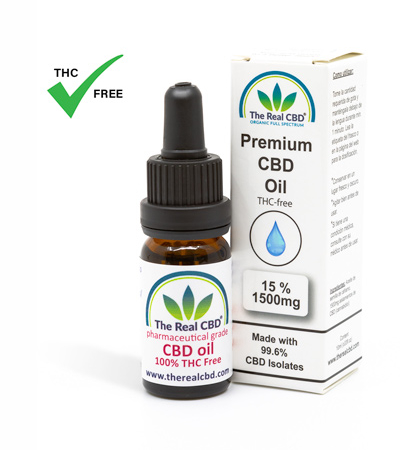 15% CBD oil – THC FreeOriginal price was: €80.00.€67.50Current price is: €67.50.
15% CBD oil – THC FreeOriginal price was: €80.00.€67.50Current price is: €67.50.

I am a certified expert in Medicinal Cannabis. We are all about giving correct and trustworthy information. We know how important it is to learn about CBD and cannabis, which is why we want to be your go-to source for trustworthy information. We help you improve your health by using our knowledge and experience as a starting point.

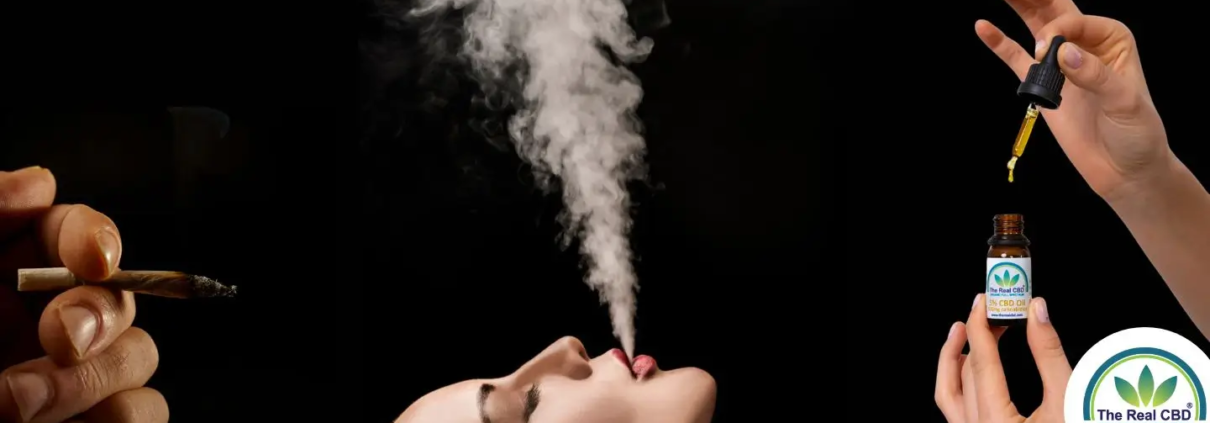




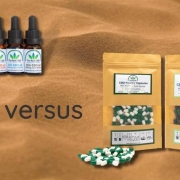







Leave a Reply
Want to join the discussion?Feel free to contribute!